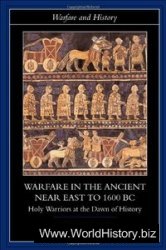Though Spener and Francke did not break offi cially from state-church Lutheranism,
the pietest movement in Germany did lead to the creation of a new denomination,
the Unity of Brethren, usually called the Moravians. Count Nicholas von Zinzendorf
(1700–60), a German nobleman, studied at Halle, and later encountered a group of
radical Protestants who had been forced to fl ee their homeland in Moravia – now part
of the Czech Republic – by Catholic authorities. Zinzendorf gave them asylum at his
estate in Herrnhut in Moravia, and later joined the group himself. Like the Quakers,
the Moravians had distinctive dress and speech. Their hymns, writings, and ceremonies
emphasized a mystical union with Christ, and were often very physical and sensuous,
full of images of bathing in the wounds of Christ and even celebrating Christ’s penis as
a symbol of his full humanity.
Zinzendorf had originally wanted the Herrnhut community to be simply a group
within the Lutheran Church that encouraged deeper religious sensibilities, but they
became instead a separate body. Zinzendorf was banished from Germany for more
than ten years and traveled to England and America to set up Moravian congregations.
(Bethlehem and Nazareth in Pennsylvania began as Moravian colonies, as did Salem
in North Carolina.) Other Moravian missionaries traveled to Africa, India, the Caribbean,
and South America; the small Moravian Church may have supplied half of the
Protestant missionaries active in the world in the eighteenth century.
The strong faith of Moravian missionaries made a deep impact on a young English
pastor, John Wesley (1703–91), on his way to Georgia to preach to colonists and Native
Americans. Wesley’s father, Samuel, was a minister in the Church of England, and
his mother, Susanna, provided religious and moral teachings to all of her nineteen
children. Wesley attended Oxford, where he and his brother Charles formed a religious
group that read the Bible for several hours each day, took communion frequently,
visited prisons and the poor, and pledged to live a moral life. They were ridiculed by
other students as a “holy club” or as “Methodists” who proposed a method of achieving
sanctifi cation and spiritual perfection.
Wesley was ordained, and decided to go to America; while on shipboard he met a
group of Moravians, who showed great courage by singing hymns through a violent
storm. Wesley was completely unsuccessful in Georgia; his white congregation hated
him, and Native Americans were not the noble savages he had expected them to be.
He came to doubt his own faith, and returned to England bitter and uncertain. There
he worshipped with a small group of Moravians, and had a conversion experience in
which his “heart [was] strangely warmed” with “trust in Christ.”
Wesley joined George Whitefi eld ( 1714–70), a former member of his “holy club” at
Oxford, preaching in the open to large crowds of people, especially in the growing
factory and mining towns that often lacked churches or schools. They often preached
three or four sermons a day, to which people responded by crying, moaning, and
shouting. In some cases sermons led to riots, sometimes instigated by thugs paid by
local Anglican ministers or landowners; Wesley, a small man, became known for his
physical courage and absolute fearlessness. He and Whitefi eld separated because of
theological and personal differences, but the movement grew, and lay people as well
as ordained ministers began to preach. Wesley originally opposed this, but slowly accepted
lay preachers as necessary in this time of deep spiritual need. He organized his
followers into small groups called “classes” for weekly meetings led by lay leaders; a
group of classes formed a “circuit” led by a superintendent, and circuits met together
in an annual conference. This structure gave leadership opportunities to quite ordinary
people, including women, and also kept members in line, as they had to give an account
of their journey toward perfect Christian love to the group each week.
Wesley saw all of these activities as a supplement to normal Anglican services, and
never offi cially broke with the Anglican Church. Anglican bishops refused to ordain
his preachers, and Anglican clergy refused to give communion to people known to be
Methodists. In the 1780s, Wesley broke with Anglican rules that allowed only bishops
to ordain new ministers, and ordained several men to serve in the newly independent
British colonies in America and in Ireland. By the time of his death, Methodism was
becoming a separate church, and it later grew into the largest Protestant denomination
in the English-speaking world. Wesley himself was politically conservative – he opposed
both the American and French revolutions – but Methodists gradually came to support
humanitarian causes such as the abolition of slavery, prison reform, temperance,
and public education, which had political implications. They still tended to emphasize
personal regeneration and holiness more than political or social change, however, which
led many leaders in the trade union movement to despise the Methodists for what they
saw as patronizing and placating workers. In many parts of Europe by the nineteenth
century, urban working-class people were divided between conservative Methodists and




 World History
World History









